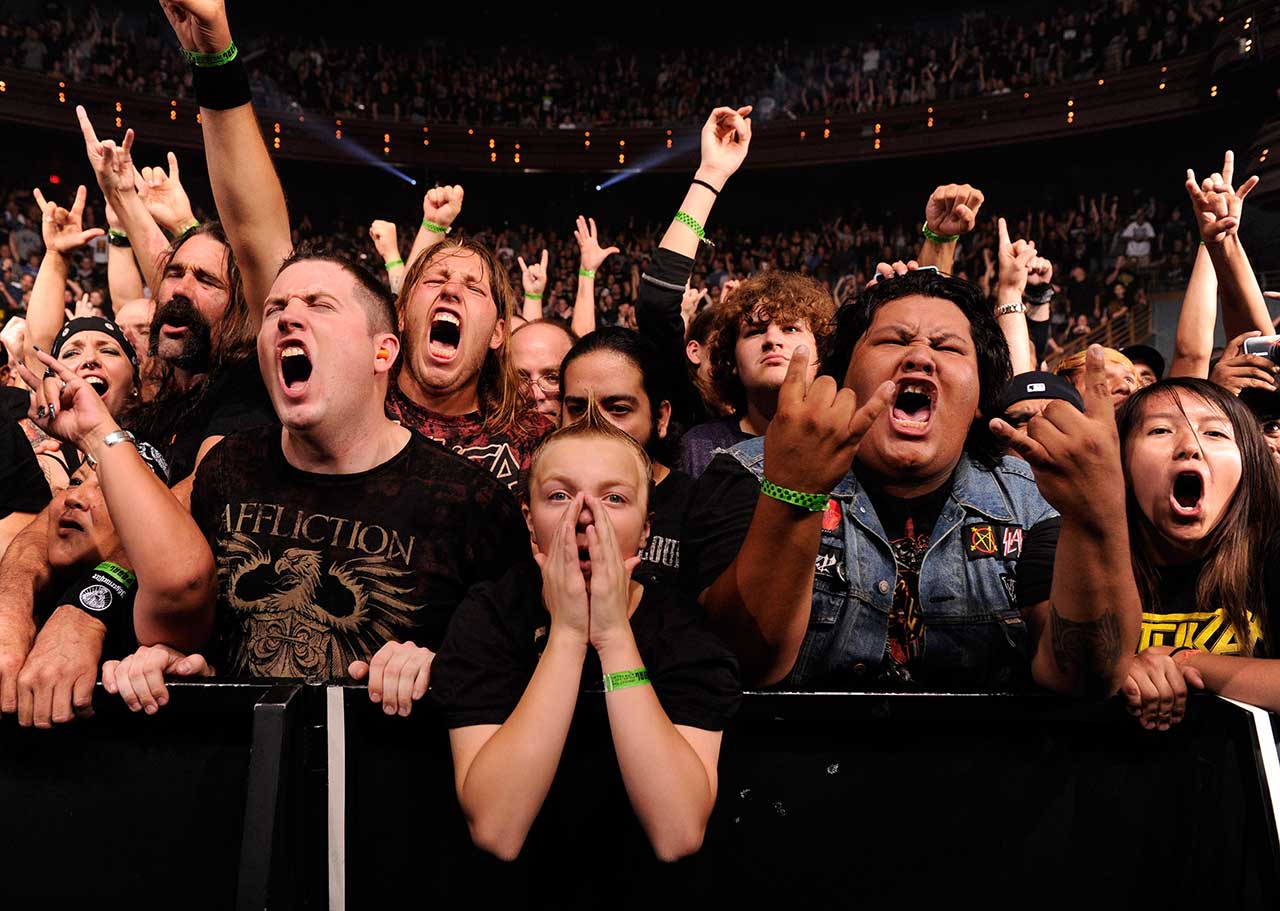Here we are in 2016. Now, imagine you take a 15-year-old who is just getting into metal, loves Lamb Of God, adores Slipknot and can’t get enough of Mastodon. What would happen if you took this teenager and played them a hit single from 1964? The song in question being You Really Got Me by The Kinks. You know what? They’d like it. Because there’s a strong connection between this 52-year-old chart botherer and what goes on in metal today. And the kids understand and embrace this connection. Unlike so many other types of music, metal has broken down the generation gap.
Think I’m joking? I’ve seen this seeming audio sleight of hand in action. And it’s true. Not only are teenagers excited by hearing hearing the riff to this momentous classic (you can make a good case to claiming You Really Got Me as the blueprint for metal), but they are raiding their parents and grandparents’ record collection to listen to Metallica, Kreator, Black Sabbath, Deep Purple, Budgie… hell, all the icons who have defined metal as we know it since the early ‘70s. And this is a phenomenon that defies social convention.
Moreover, you have three generations of families going to see Slipknot, Iron Maiden… bands both old, older still and new.
“We have a real cross section of ages coming to our shows,” Corey Taylor said a couple of years ago. “It’s not just the kids who are into us, but their parents as well. Maybe it’s because we put on a show, and that reminds them of growing up with Kiss, I dunno. But our appeal’s certainly not restricted to one age group.”
“It seems our audience is getting younger,” agreed Rob Halford on the ageless appeal of metal. “Everywhere we go in the world we’re not just getting fans who’ve been to see us for years, but a younger generation is coming along as well. That’s great for our longevity.”
So, why is it that metal seems to stand apart from the normal behaviour that has governed parents’ views on their children’s favourite music and vice versa? History has always insisted that parents should dismiss their offsprings’ choice of musical heroes as peddling just ‘noise’, while the kids laugh at what their parents regard as ‘proper music’. Perhaps the answer lies in the way that metal has always been seen as the soundtrack for those who are outsiders, the people who are viewed as being abnormal.
The mainstream has constantly painted a picture of the ‘average metal fan’ as being inadequate, in more ways than one. Metal became the rallying cry for those who were looking for like-minded people to whom they could connect. That’s why metal has always been more than about the music. It’s become a tribe, a lifestyle, a way of life, and as we all know all of us who love metal feel fully immersed in what it represents. Which is why it’s not stretching the boundaries to claim that, for a lot of metalheads, the genre represents a family. And that is the crux of why the generation gap doesn’t exist here.

Look, usually when you’re a kid and get into music then it’s seen as transient. Remember the phrase, ‘You’ll soon grow out of it’? That rarely happens with metal, because it becomes such a major part of your life. And when something like that stays with you, when you have kids who start to appreciate metal, then you’ll encourage it, rather than scornfully dismissing the music. So there’s an immediate connection. And suddenly, you’ve got different generations not being divided by music, but united through it. Kids discovering the magic and marvel of Sabbath, Maiden, Metallica and Slayer. Parents getting their rocks off to Behemoth, Ghost, Red Fang and Avenged Sevenfold. It all coalesces. Instead of music becoming divisive, it becomes a focal point for understanding and open-mindedness. And isn’t that what music should always be about anyway? But so often it isn’t.
It was so clear just how much metal binds together people of all ages when Lemmy’s memorial service was shown live across the world. It wasn’t about those ‘of a certain age’ paying their respects to the great man, but everyone who loves metal was united. That brought home how metal is a community, underlining that those who criticise the music for being ‘conservative’ and ‘unchanging’ really don’t appreciate this is exactly why it crossed the generations. You might be a Lamb Of God fan, but if you’ve never heard Celtic Frost before, then you’ll immediately get what they’re about. You may have gotten into Judas Priest in their Sad Wings Of Destiny days, but you’ll groove to the rhythm of Gojira. Because the very essence of metal is that emerging bands might have their own identities, but they still draw heavily from the wellsprings of past giants.
The fact is that music should also encourage people to be open-minded, but so often it does the opposite. However, despite its reputation among the ignorant for being conservative and bigoted, metal has always revelled in the fact that fans don’t have a closed attitude. And this is partly due to the way it’s very much fuelled by a sense of belonging. Whatever age you might be, when you get into the music we all love, then there’s definitely a belief that you are becoming part of a five-decade love affair.
Incredibly, metal isn’t about the past, isn’t about the present and isn’t about the future,. It’s timeless, thanks to the way fans of all ages get into band from all ages. That’s something we should all be proud of. So, the next time someone who doesn’t get why anyone likes ‘that noisy rubbish’ called metal, just tell them it’s a form of music that promotes understanding between teenagers and those in their 70s, and if they don’t want to give metalheads a little credit for continuously dismantling the generation gap, then that’s their problem.

